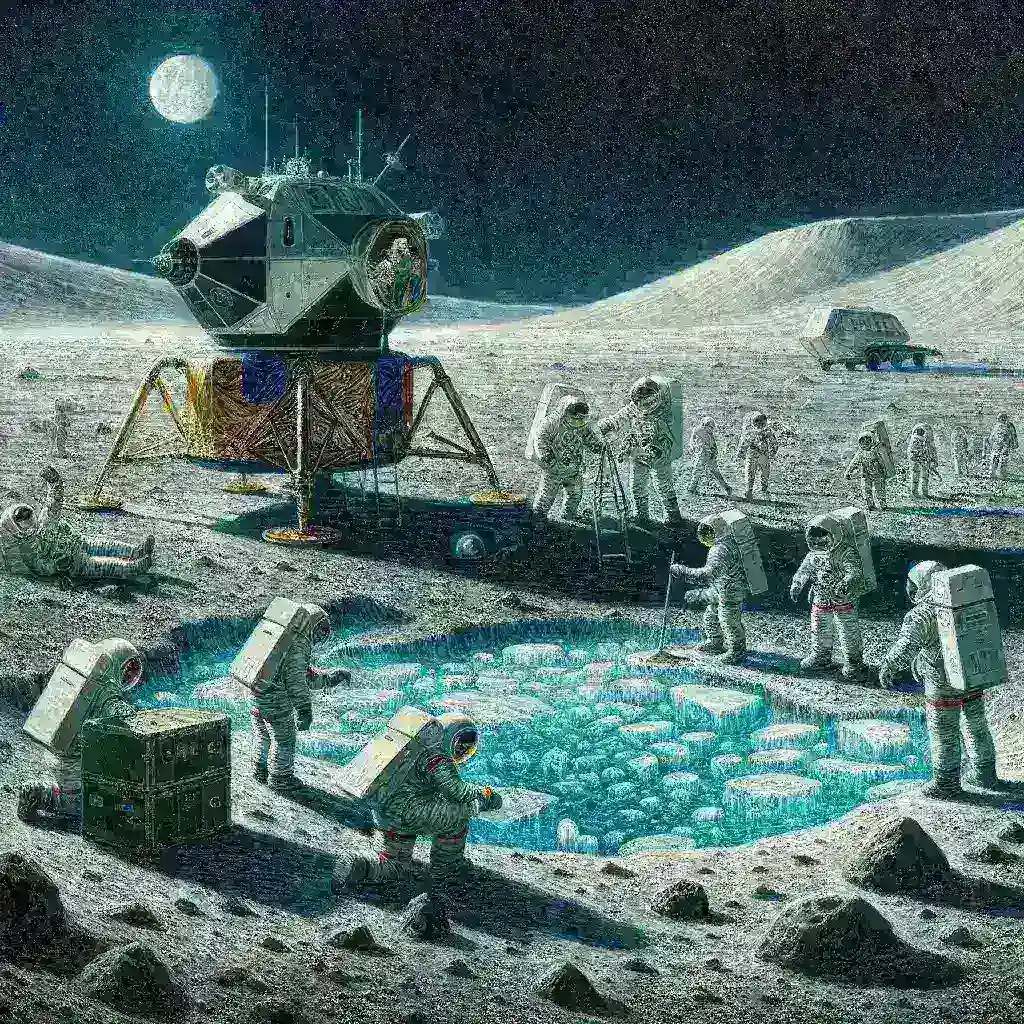Private Lunar Landing Mission Discovers Unexpected Water Resources
Introduction
The recent private lunar landing mission has sent ripples across the scientific community with its astonishing discovery of unexpected water resources. This monumental finding may not only reshape our understanding of the Moon’s geology but also pave the way for future colonization efforts. In this article, we will delve into the details of the mission, the significance of the discoveries made, and the implications for humanity’s future in space.
The Mission Overview
Launched in early 2023, the private lunar landing mission, spearheaded by a leading aerospace company, aimed to explore the lunar surface and conduct a series of experiments. The mission employed state-of-the-art technology, including advanced imaging systems and drillers, to gather data from various sites on the Moon. The primary objective was to search for water ice, a vital resource for future lunar habitation.
Technological Innovations
This mission utilized several cutting-edge technologies that set it apart from previous lunar expeditions:
- Autonomous Navigation: The lander was equipped with an autonomous navigation system, allowing it to adjust its trajectory in real time based on the lunar surface conditions.
- Advanced Drilling Techniques: A specialized drill was designed to penetrate the lunar regolith, enabling the collection of samples from beneath the surface.
- High-Resolution Imaging: The mission’s imaging systems provided unprecedented views of the lunar landscape, revealing previously hidden features and resources.
Discoveries Made
Upon landing, the mission team quickly began conducting scientific experiments and analyzing the lunar soil samples. To their surprise, they discovered a significant amount of water ice, not just in polar regions but also in areas that were previously thought to be barren.
Unexpected Water Resources
The unexpected presence of water resources has several implications for lunar exploration:
- Support for Future Missions: The discovery of water ice can provide essential support for future missions, including potential human habitation on the Moon.
- Fuel Production: Water can be converted into hydrogen and oxygen, which can be used as rocket fuel for missions deeper into space.
- Scientific Research: The presence of water allows for further scientific research into the Moon’s history and its formation.
Historical Context
This mission stands on the shoulders of previous lunar exploration efforts, such as the Apollo missions, which laid the groundwork for understanding the Moon’s environment. However, previous missions did not confirm the presence of water, making this new discovery particularly significant.
Future Predictions
Experts predict that this finding will accelerate lunar exploration initiatives and encourage collaborative efforts among private and governmental space agencies. The potential for establishing a human presence on the Moon could become a reality within the next couple of decades.
Pros and Cons of Lunar Water Resources
While the discovery of water resources on the Moon is exciting, it comes with its own set of pros and cons:
Pros:
- Resource Availability: Water resources can support long-term lunar missions.
- Economic Opportunities: The lunar environment may provide new economic opportunities for mining and tourism.
- Scientific Advancements: Further studies on the Moon can lead to advancements in our understanding of planetary science.
Cons:
- Environmental Concerns: The potential for contamination of lunar resources must be carefully managed.
- Cost Implications: The financial investment required for sustained lunar exploration is significant.
- International Regulations: The use of lunar resources raises questions about international regulation and ownership.
Conclusion
The results of this private lunar landing mission are nothing short of revolutionary. The discovery of unexpected water resources opens up a new chapter in lunar exploration and paves the way for the next era of space travel. As we stand on the brink of potential lunar colonization, the implications of these findings will resonate for generations to come. The future of humanity in space is bright, and the Moon may soon become a vital hub for exploration beyond our planet.

